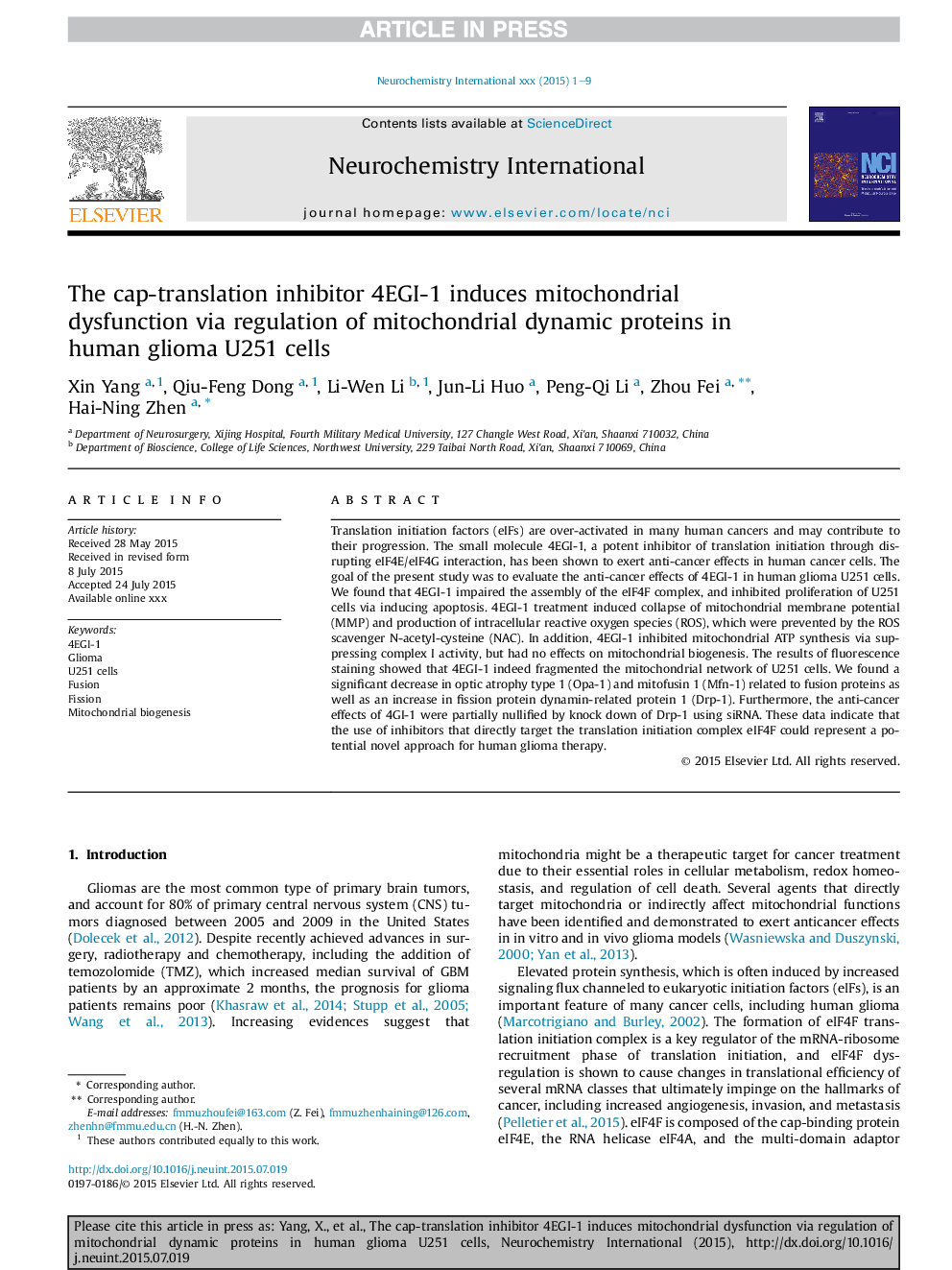| Article ID | Journal | Published Year | Pages | File Type |
|---|---|---|---|---|
| 8479116 | Neurochemistry International | 2015 | 9 Pages |
Abstract
Translation initiation factors (eIFs) are over-activated in many human cancers and may contribute to their progression. The small molecule 4EGI-1, a potent inhibitor of translation initiation through disrupting eIF4E/eIF4G interaction, has been shown to exert anti-cancer effects in human cancer cells. The goal of the present study was to evaluate the anti-cancer effects of 4EGI-1 in human glioma U251 cells. We found that 4EGI-1 impaired the assembly of the eIF4F complex, and inhibited proliferation of U251 cells via inducing apoptosis. 4EGI-1 treatment induced collapse of mitochondrial membrane potential (MMP) and production of intracellular reactive oxygen species (ROS), which were prevented by the ROS scavenger N-acetyl-cysteine (NAC). In addition, 4EGI-1 inhibited mitochondrial ATP synthesis via suppressing complex I activity, but had no effects on mitochondrial biogenesis. The results of fluorescence staining showed that 4EGI-1 indeed fragmented the mitochondrial network of U251 cells. We found a significant decrease in optic atrophy type 1 (Opa-1) and mitofusin 1 (Mfn-1) related to fusion proteins as well as an increase in fission protein dynamin-related protein 1 (Drp-1). Furthermore, the anti-cancer effects of 4GI-1 were partially nullified by knock down of Drp-1 using siRNA. These data indicate that the use of inhibitors that directly target the translation initiation complex eIF4F could represent a potential novel approach for human glioma therapy.
Related Topics
Life Sciences
Biochemistry, Genetics and Molecular Biology
Cell Biology
Authors
Xin Yang, Qiu-Feng Dong, Li-Wen Li, Jun-Li Huo, Peng-Qi Li, Zhou Fei, Hai-Ning Zhen,
